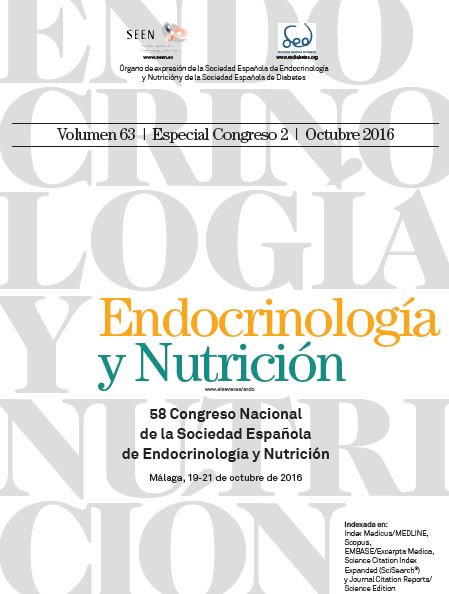306 - METHIMAZOLE-ASSOCIATED PLEURAL EFFUSION
aEndocrinology Department; bMedicine Department. Santa Maria Hospital. CHLN and Lisbon Medical School. Lisbon. Portugal.
Introduction: Agranulocytosis, idiosyncratic liver damage and vasculitis are well known side effects of thionamides. Thionamide-associated pleural effusions are extremely rare and therefore, not commonly considered.
Case report: A 75-year-old man was admitted to the medicine department due to a right-sided pleural effusion. His past history included renal tuberculosis and a pharyngeal carcinoma. He presented end-stage renal disease under regular dialysis program, high blood pressure, ischemic heart disease and permanent atrial fibrillation. He was treated with amiodarone for five years but interrupted that medication six months before admission due to ophthalmologic side effects. One month before admission, hyperthyroidism was diagnosed and methimazole therapy introduced. At admission, the hyperthyroid state was maintained. Common causes for the pleural effusion were excluded. Titles of thyroglobulin (Tg), anti-Tg, anti-thyroperoxidase, anti-TSH receptor antibodies, ANA, ANCA and anti-ds-DNA antibodies were normal. The ultrasonography revealed thyroid micronodules and there was no radioisotope uptake in the 99mTc thyroid scintigraphy. The thoracentesis revealed an eosinophilic pleural effusion. Type II amiodarone-induced hyperthyroidism and methimazole-associated pleural effusion were considered. Thus, methimazole therapy was withdrawn and prednisolone was introduced with normalization of the thyroid function and disappearance of the pleural effusion.
Discussion: Amiodarone may cause hyperthyroid states by inducing toxic adenomas, by a direct cytotoxic effect on thyroid cells, and less frequently, by precipitating a Graves disease. Initial administration of thionamides to these patients is not unusual, although they are not useful in the second case. Pleural effusions associated with thiomamides are extremely rare, usually occurring weeks after the beginning that therapy. Thionamide interruption and corticoid therapy are effective treatments for this side effect.




